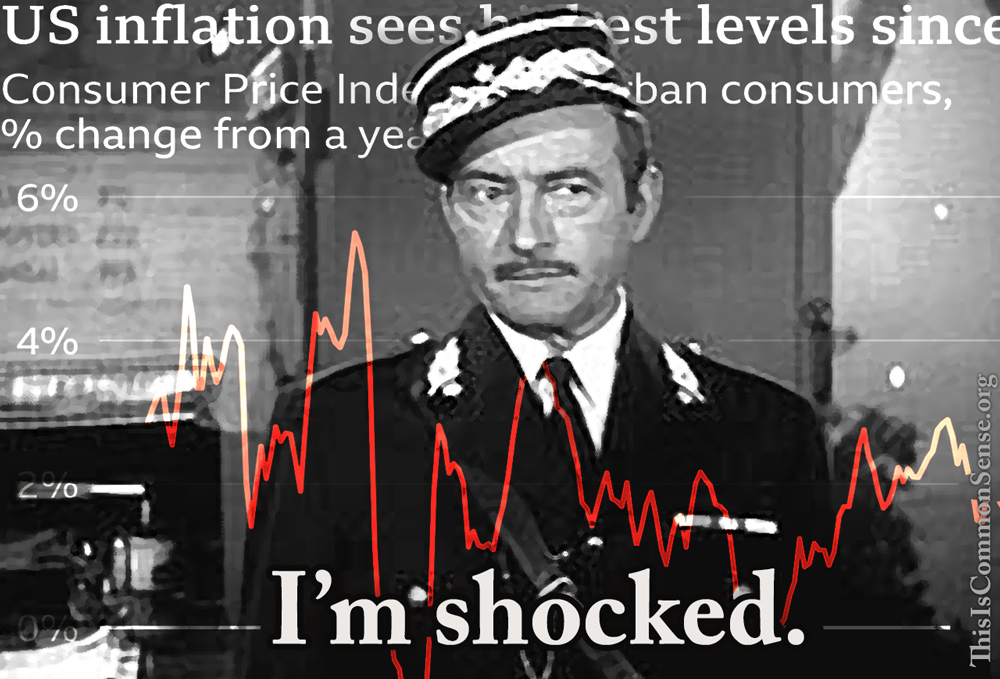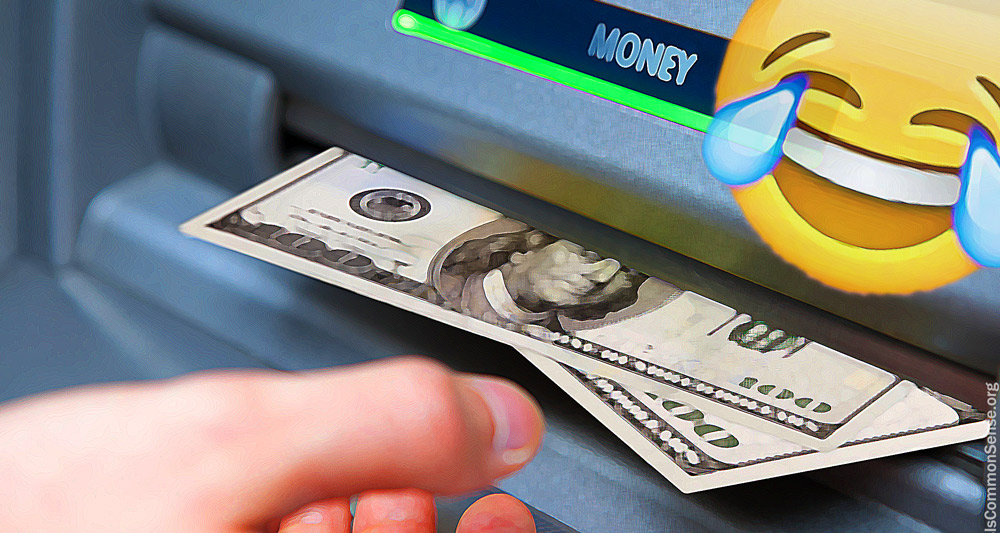The Biden administration is siccing agencies like the Federal Trade Commission, Department of Agriculture, and the Federal Maritime Commission onto the producers of stuff who have recently dared to raise prices.
Stuff like gas. Higher prices at the pump must be an oil-company conspiracy.
It has nothing to do with (and don’t even think it!) governmental actions that impede production, including shutting down the Keystone oil pipeline on Biden’s first day in office or calling a halt to new oil leases on public lands. Etcetera.
Nothing to do with mammoth expansion of the supply of money and credit to facilitate trillion-dollar government spending sprees.
In case you hadn’t noticed, meat costs more, too. So obviously that must be the fault of malicious meatpackers. Rest assured that beef price inflation is utterly unrelated to pandemic-policy-induced labor shortages and delays.
Or to any recent increase in efficiency-impairing trucking regulations.
Same with sundry supply-chain problems, like the ships and crates piling up at ports. Greater consumer demand, new pandemic-induced screening protocols, union rules that prevent ports from operating 24/7 or improving automation — all irrelevant.
Must be. That’s the script from 1600 Pennsylvania Avenue, anyway.
But if companies can hike prices at will, ignoring whether regulations ease or obstruct production, why doesn’t the meat industry, for example, charge a thousand dollars per pound of flesh?
Well, we know why.
Demand for a pound of ground beef would slide to zero, or close to it.
If only the government people knew!
Or would stop pretending they don’t know.
A consistent recognition of the laws of economics would sure make a great gift — in any season. Instead of bullying and making things worse, government could get out of the way.
This is Common Sense. I’m Paul Jacob.
—
See all recent commentary
(simplified and organized)







